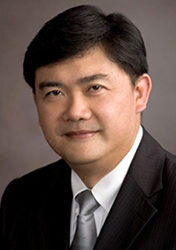Best Trusts Lawyers in City Hall
Share your needs with us, get contacted by law firms.
Free. Takes 2 min.
List of the best lawyers in City Hall, Singapore
Singapore Trusts Legal Questions answered by Lawyers
Browse our 1 legal question about Trusts in Singapore and read the lawyer answers, or ask your own questions for free.
- deed poll
- Hi, can I check what is your quote for the deed poll for a change of name?
-
Lawyer answer by Bhavini S Law Practice
Hello. Our charges for Deed Poll is SGD 70.00.
Read full answer
About Trusts Law in City Hall, Singapore:
Trusts in City Hall, Singapore, refer to legal arrangements where a person (the settlor) transfers assets to another person (the trustee) to manage for the benefit of a third party (the beneficiary). Trusts are commonly used for estate planning, asset protection, and charitable purposes in Singapore.
Why You May Need a Lawyer:
You may need a lawyer for trusts in City Hall, Singapore, to ensure that your trust complies with local laws, to help you navigate the complexities of setting up a trust, to resolve disputes related to trusts, and to provide legal advice on managing and distributing trust assets.
Local Laws Overview:
In Singapore, trusts are governed by the Trustees Act and the Trust Companies Act. The law requires trustees to act in the best interests of the beneficiaries, to avoid conflicts of interest, and to manage trust assets prudently. Singapore also has strict regulations on the formation and operation of trust companies in the country.
Frequently Asked Questions:
What is a trust deed?
A trust deed is a legal document that outlines the terms and conditions of a trust, including the roles and responsibilities of the trustee, the rights of the beneficiaries, and the purpose of the trust.
Can I be both the settlor and beneficiary of a trust in Singapore?
Yes, you can be both the settlor and beneficiary of a trust in Singapore. However, it is important to ensure that the trust is not used for illegal purposes or tax evasion.
How are trust assets distributed to beneficiaries?
Trust assets are distributed to beneficiaries according to the terms of the trust deed. The trustee has a legal obligation to follow the instructions outlined in the trust deed when distributing assets to beneficiaries.
What is a revocable trust?
A revocable trust is a type of trust where the settlor retains the right to revoke or amend the trust at any time during their lifetime. Once the settlor passes away, the trust becomes irrevocable.
Can I modify the terms of a trust in Singapore?
Yes, the terms of a trust can be modified in Singapore, but only with the consent of all the parties involved, including the settlor, trustee, and beneficiaries. Any modifications should be documented in writing.
Are there any tax implications of setting up a trust in Singapore?
Yes, there are tax implications of setting up a trust in Singapore. Income derived from trust assets may be subject to tax, and it is important to seek advice from a tax professional to understand the tax implications of your specific trust arrangement.
How long does a trust in Singapore last?
A trust in Singapore can last for a specified period or for the lifetime of the beneficiary, depending on the terms outlined in the trust deed. Some trusts may have a fixed term, while others may be ongoing and open-ended.
What is the role of a trustee in a trust?
The role of a trustee in a trust is to manage trust assets, to act in the best interests of the beneficiaries, to avoid conflicts of interest, and to administer the trust in accordance with the trust deed and local laws.
Can a trust be challenged in court in Singapore?
Yes, a trust can be challenged in court in Singapore under certain circumstances, such as allegations of breach of trust, misconduct by the trustee, lack of capacity of the settlor, or disputes among the beneficiaries. It is advisable to seek legal advice if you are considering challenging a trust.
What should I consider before setting up a trust in Singapore?
Before setting up a trust in Singapore, you should consider your objectives for the trust, the type of assets you want to transfer to the trust, the beneficiaries you want to benefit from the trust, the terms and conditions of the trust deed, and any tax or legal implications of setting up the trust.
Additional Resources:
For more information on trusts in City Hall, Singapore, you may refer to the Singapore Trustees Association (STA) or seek advice from a qualified trust lawyer or legal firm specializing in trusts and estates.
Next Steps:
If you need legal assistance in setting up a trust, managing a trust, resolving trust disputes, or seeking advice on trusts in City Hall, Singapore, it is advisable to consult with a trust lawyer who has experience in Singapore trust laws. Consider contacting a reputable law firm or legal advisor specializing in trusts to discuss your specific needs and get personalized legal advice.
Lawzana helps you find the best lawyers and law firms in City Hall through a curated and pre-screened list of qualified legal professionals. Our platform offers rankings and detailed profiles of attorneys and law firms, allowing you to compare based on practice areas, including Trusts, experience, and client feedback.
Each profile includes a description of the firm's areas of practice, client reviews, team members and partners, year of establishment, spoken languages, office locations, contact information, social media presence, and any published articles or resources. Most firms on our platform speak English and are experienced in both local and international legal matters.
Get a quote from top-rated law firms in City Hall, Singapore — quickly, securely, and without unnecessary hassle.
Disclaimer:
The information provided on this page is for general informational purposes only and does not constitute legal advice. While we strive to ensure the accuracy and relevance of the content, legal information may change over time, and interpretations of the law can vary. You should always consult with a qualified legal professional for advice specific to your situation.
We disclaim all liability for actions taken or not taken based on the content of this page. If you believe any information is incorrect or outdated, please contact us, and we will review and update it where appropriate.












